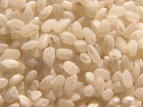Celebrating food, farms & gardens
 Monday, March 14, 2011
Monday, March 14, 2011 Nutrition Month may be officially over but I forgot (!) to publish this post last week, so here it is now, a little late but still timely.
That all people in the community, at all times, have access to nutritious, safe, personally acceptable and culturally appropriate foods, produced in ways that are environmentally sound and socially just.
To help my knowledge keep pace with my passion for food security & environmental sustainability, on March 12th I attended the Richmond Food Security Society's Conference where I listened to stories that inspired and informed me.
After the sessions, I did some research to learn more about the speakers & their projects. If you're interested in food security and sustainability issues or setting up a healthy school lunch program or school garden project, I encourage you to check out the following resources:
Food For All – Making Food Security more Inclusive (Jelica Shaw, Claudia Li, Cease Wysse)
Farm 2 School & Food Gardens: How to advocate for healthy food in our schools (Joanne Bays & Michael Wolfe)
Food Gardens in Richmond - School Year Garden Toolkit
 Post a Comment | |
Post a Comment | |  Permalink | tagged
Permalink | tagged  Food Security,
Food Security,  environmental nutrition,
environmental nutrition,  school gardens in
school gardens in  Learning
Learning 
